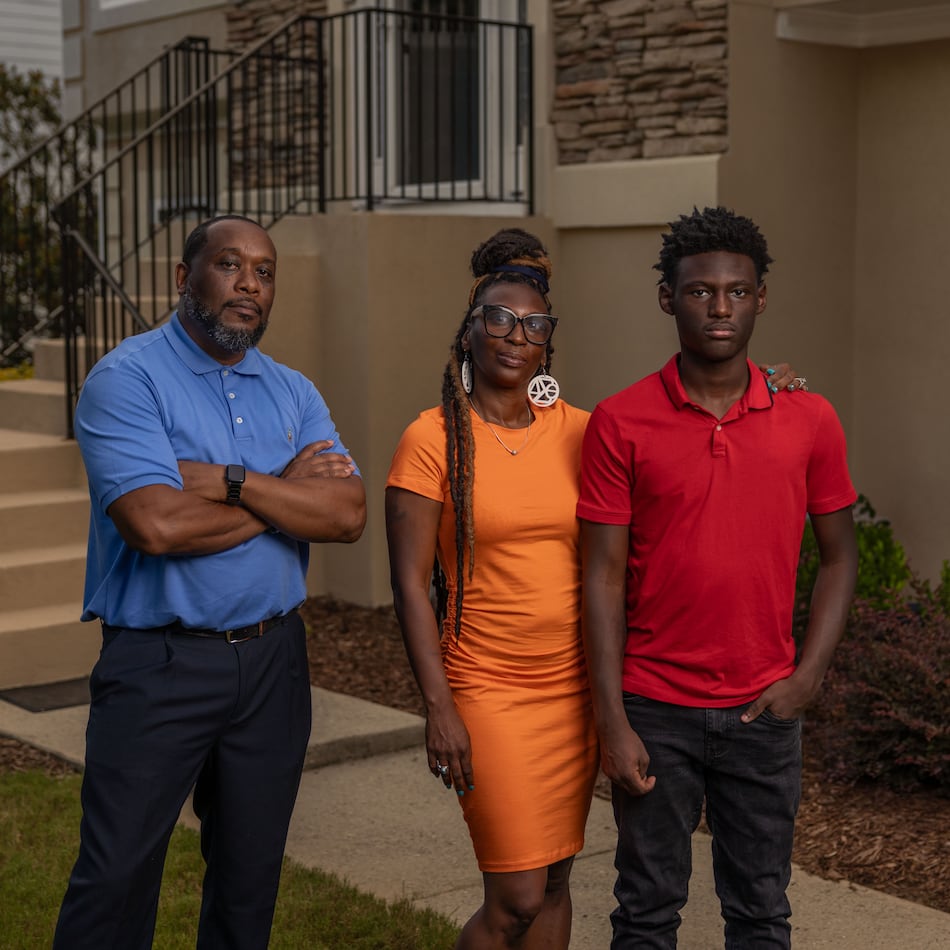Jerry Dunaway said his heart sank while staring at the glow of a cellphone inside his northeast Gwinnett County home last week.
He had just tried to withdraw money from his cryptocurrency account, but couldn’t. The 74-year-old’s head was spinning. He felt sick.
A whopping $802,000 was gone, he said.
“It’s one of those things that your mind starts reeling back as to what happened. How was I duped in all this?” Dunaway told The Atlanta Journal-Constitution on Thursday morning. “I think that probably the hardest thing is that I had to explain it to my wife and family. It’s teary, embarrassing. I feel ashamed. I actually want to hide my head under a rock.”
But Dunaway isn’t hiding.
The U.S. Navy veteran said he wants to warn others about the dangers of cybercrimes involving cryptocurrency, which have been on the rise in recent years. In 2024, victims of investment fraud, specifically those involving cryptocurrency, reported more than $6.5 billion in losses, according to the latest annual crime report from the FBI.
The online landscape is fueling scammers. Most of the victims are over the age of 60, authorities said, and many don’t talk publicly about it out of shame.
Dunaway said he started investing in stocks like most people do. But in March, he got a message on WhatsApp from a person named “Sophei Van Buren.” The general discussions led to investments and eventually into the realm of cryptocurrency. Dunaway said he figured the digital currency was like how startups such as Amazon and Google were embraced back in the day.
Van Buren tried to get him comfortable by kidding around with him, even using flirtation at one point, according to the family and the police report. But he didn’t want to elaborate on her other tactics.
“The fact of the matter is that I was sucked in,” he said.
The woman helped him with small transactions at first. He was told that a team of analysts would tell him the best time to trade, and things were good.
“I was seeing 50% gains, and one time I withdrew $20,000,” Dunaway said. “I thought, ‘Wow, this stuff is really working.’”
A Gwinnett police report said Van Buren provided him with a LinkedIn account and company website (FA-SOPHEI.COM) to “show that she was real and serious about the trading opportunity.”
“Dunaway stated that when he looked further into Ms. Sophei, he found something regarding funding and advice for startups with a company called Alliance of Angels, which is a funding and advice group for the northwest parts of the United States,” an officer wrote in the report.
To make him feel more at ease, Dunaway said the alleged scammers even gave him the name of the company’s former CEO.
Last week, Dunaway finally decided to transfer a sizable amount to his personal bank account. He said there appeared to be money in the crypto account, but when he tried to withdraw it, there were zero funds available to transfer. He said the scammers had placed fake screens and buttons on his accounts that also linked money to other places, creating confusion.
He quickly called police.
Dunaway said officers told him the money is likely out of the country and that the FBI would have to get involved. The hope is that the transactions can be linked to other scammers. He said police told him there is “always a chance” to get the money back and that some people have recovered their losses years later.
“I can confirm that the victim in this case did send money to someone. The amount and the reason for the transfer of funds are currently being investigated,” Gwinnett police spokesperson Cpl. Juan Madiedo told the AJC.
Van Buren was listed as the suspect in the police report, though no arrests have been made, and it’s unclear if that is her real name. Charges included theft by deception, deceptive, fraudulent or abusive telemarketing, and exploiting/inflicting pain to deprive essential services to a disabled person, elderly person or resident. According to the report, the latter two offenses are classified as felonies. Madiedo said the actual charges could vary, and those listed were essentially placeholders for now during the early stages of the investigation.
“I look at it as even though I participated, I’m still a victim,” Dunaway said. “I was duped.”
Jerry Dunaway and his wife Mindy moved to metro Atlanta from Ohio about 30 years ago. He was a salesman who said his knowledge of scams essentially came from when your phone would classify an incoming caller as one. Mindy, 73, was a pen/ink illustrator and survivor of uterine cancer that had metastasized to the bone nearly 25 years ago. At the time, she was told she had nine months to live.
The couple have since retired but are now questioning what they have to do to survive. They described their remaining funds as a “drop in the bucket.”
A GoFundMe page was created by their family to help with recovering the lost money. The two grandparents have been in discussions with an accountant, and their home is currently littered with boxes of receipts — “like Tax Day,” Jerry Dunaway said. They said donations that exceed their $200,000 goal would be contributed to an undetermined nonprofit to help other crypto scam victims.
“Now, some people would say, ‘Oh, chemo is the worst thing,’” Mindy Dunaway said. “Well, this (scam) is right up there with it.”
“But I tell you what, we learned how to survive then,“ Jerry Dunaway responded. ”We will survive this.”
About the Author
Keep Reading
The Latest
Featured



